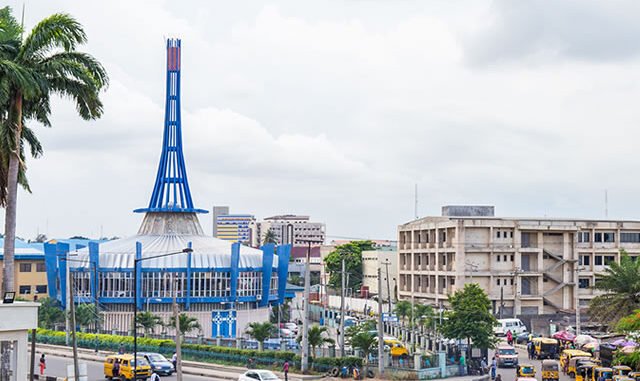
In Lagos, where you live often depends on where you work and how you get there. While some Nigerians are choosing remote work or starting their businesses, many still have traditional jobs from 9 to 5. Lagos Island, the busy centre of business, attracts workers from all over Lagos, who sometimes have to commute long distances to get there.
Key Takeaway Points:
- Commuting is a significant consideration for workers in Lagos, with many facing long journeys to reach their workplaces.
- Gbagada, Yaba, Ajah, Surulere, Ebute Metta, Oworonshoki, Oshodi, and Ketu are among the top residential areas for workers on Lagos Island.
- Factors such as proximity to work, transportation options, housing costs, safety, and lifestyle preferences should be considered when choosing a residential area in Lagos.
- Each neighbourhood has its unique charm and advantages, offering a variety of options to suit different needs and preferences.
Table of Contents
Toggle1. Gbagada
Gbagada, between Kosofe and Shomolu, is a popular area. It’s mostly residential, with well-known parts like Ifako, New Garage, and Diya Street. The best thing about Gbagada is its location. It’s easy to get to the Island using the Third Mainland Bridge, and you can also reach the mainland through the Oworonshoki-Oshodi Expressway.
Even though rents are going up, there are still affordable places to live, from 3-bedroom apartments to smaller flats and duplexes. Gbagada has good roads, manageable traffic, and reliable electricity, making it an attractive place to live.
2. Yaba
Yaba is another great option for Island commuters. Living here means you’re close to Victoria Island, Ikoyi, and Lekki, which saves money on transportation and avoids heavy traffic.
Yaba is becoming a hub for technology companies, banks, and universities. Crime rates are generally low, possibly because of good security or the busy atmosphere that keeps criminals away. However, property costs are high in Yaba, and there can be other challenges related to housing.
3. Ajah
Ajah, despite being on the Island, is one of Lagos’ fastest-growing areas. It’s becoming more important on its own, not just because of its proximity to Lekki. It’s in the same local government area as other Island areas, making it closer to them.
Accommodation options are available in places like Langbasa, Sangotedo, and Badore, with stable electricity. Ajah has decent roads, a peaceful environment, and good security. However, it can flood during rainy seasons, and rents are high. Traffic, especially around Lekki Phase 1 and Jakande, is a big problem.
4. Surulere
Surulere is well-known on the mainland and is busy and lively. It connects the mainland to the Island, making it convenient for both. Surulere is diverse, with people from different backgrounds and beliefs. It’s easy to fit in here, and there’s little segregation. However, it can be expensive to find a place to live in Surulere, and traffic can be bad.
5. Ebute Metta
Ebute Metta is another good option for Island workers. It’s historically important and well-connected to both the mainland and Island. Housing options vary, from small apartments to larger units, to suit different preferences.
6. Oworonshoki
Oworonshoki is a crowded residential area with good accessibility. It’s affordable to live here, and it’s easy to get to both the mainland and the Island through Diya Street.
7. Mushin
Mushin is another good place to live if you work on the Island. It is a stone throw to Oshodi, Yaba and Surulere. House rent in Mushin is relatively less expensive when compared to other areas in Lagos.
8. Oshodi
Oshodi is a busy area that connects different parts of Lagos. It’s undergone big changes and has become more organized. The Oshodi Transport Interchange has made commuting easier. It’s accessible to both the mainland and Island, making it a good option for people who need to travel around Lagos a lot.
9. Ketu
Ketu is a diverse area with both residential and commercial spaces. It’s well-connected to different parts of the city and the Island. While it might not be as fancy as some other areas, it offers an authentic Lagos experience. However, traffic can be bad, especially during rush hours.
Conclusion
In conclusion, Lagos has many neighborhoods, each with its own charm. When choosing where to live, consider things like how close it is to work, transportation, cost, safety, and the lifestyle you want. Each neighborhood has its pros and cons, but there’s something for everyone in this vibrant city.
Leave a Reply